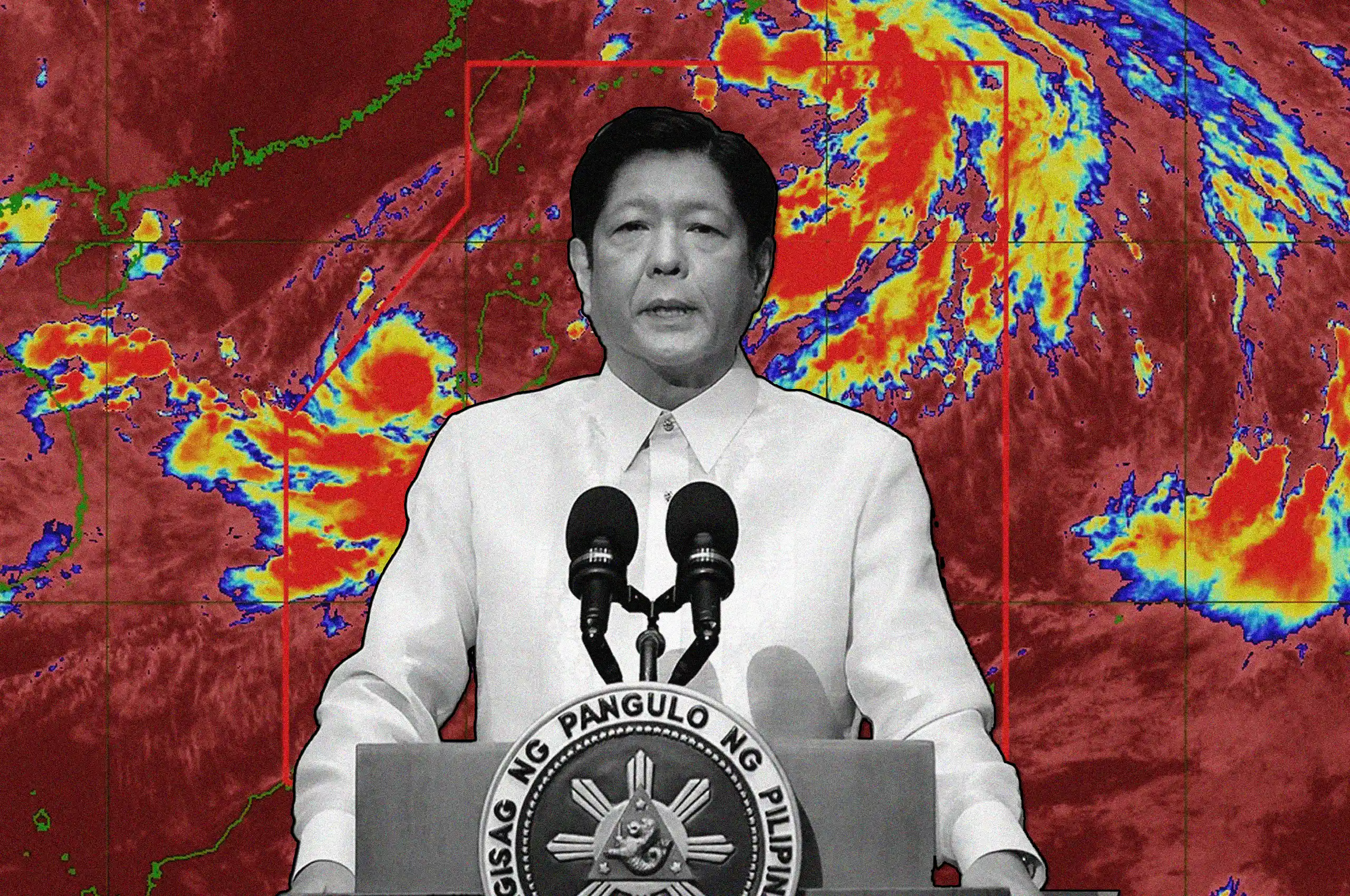The onslaught of Tropical Storms Crising, Dante, and Emong enhancing the effects of low pressure areas and the southwest monsoon has affected 1.9 million Filipinos and P4 billion worth of infrastructure. As such, citizens are expecting President Ferdinand “Bongbong” Marcos Jr. to address the country’s most pressing climate issues as he delivers his fourth State of the Nation Address (SONA) this Monday, July 28.
In previous SONAs, the Marcos administration consistently positioned climate change as one of the country’s most urgent concerns. Like many aspects of his administration, his legislative reforms have focused on an investment-led approach to climate issues by upgrading infrastructure, developing evidence-based solutions, and fostering public-private partnerships.
“All our efforts is [sic] climate change — an issue that we have integrated in our national and regional policies,” he said in October 2024, during a dinner at the Asia Pacific Ministerial Conference on Disaster Risk Reduction. “From investment strategies to policy implementation, disaster risk reduction and climate change adaptation and mitigation are now central to how we shape our future.”
With civil society groups pointing out gaps in Marcos’ environmental policy, it raises the question of just how much the President has followed through on his promises. We take a look at how the administration has addressed climate issues in his previous SONAs, and whether or not he’s taken action.
Commit to Decarbonization
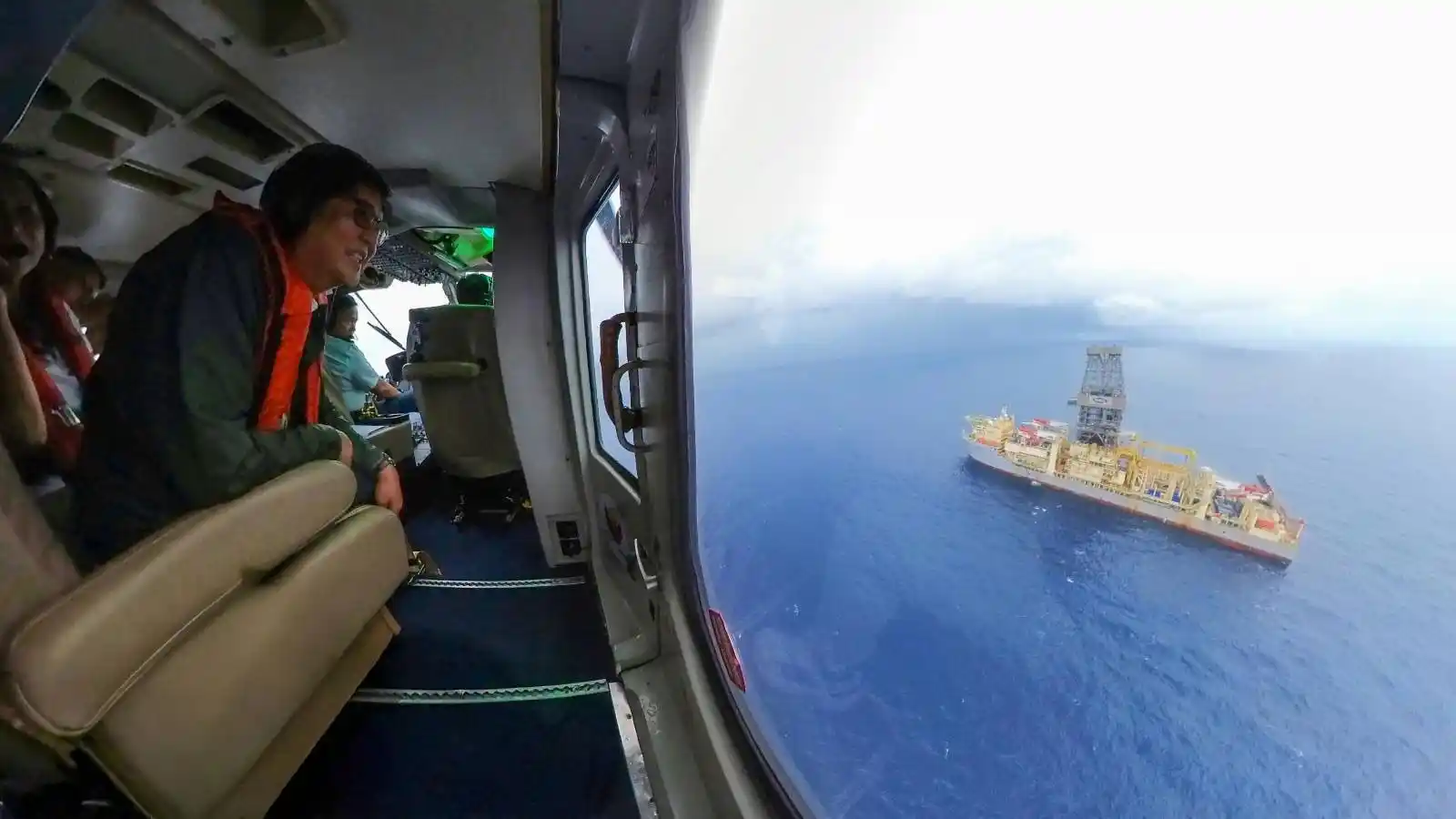
“Companies who exploit our natural resources must follow the law,” Marcos said in his first SONA in 2022. “We all have the responsibility to preserve this Earth, for we are but custodians, and we will pass on this great treasure to future generations.”
Marcos also reiterated his commitment to reducing the Philippines’ carbon footprint during his second SONA in 2023. “We remain committed to global decarbonization goals,” he said. “We preserve and protect the treasure that is our forests. Their value to the environment, to the ecology, and the economy is incalculable.
As of May 27, 2025, the Board of Investments fast-tracked 208 projects, 78 percent of which were renewable energy ventures, amounting to P5.2 trillion. From July 2022 to April 2025, the Department of Trade recorded P3.54 trillion worth of approved investments under Marcos, driven largely by renewable energy projects. This amount was a 71 percent increase in investments compared to the same period under the previous administration.
As of July 2025, the Philippines is set to experience its first decline in coal power in nearly two decades, though this is due to rising liquefied natural gas-fired power generation, which accounts for 17.5 percent of the country’s energy mix this year. In 2023, renewables made up 22 percent of the Philippines’ energy, which is still below the global average of 30 percent during the same year. The Philippines is still the most coal-dependent country in Southeast Asia, comprising 57 percent of the nation’s energy needs.
According to a 2023 statement by Lia Mai Torres, executive director of environmental think tank Center for Environmental Concerns, eight mining permits totaling 5,864 hectares have been approved under Marcos’ administration. Alongside civil society groups like Kalikasan People’s Network, she criticized the 1995 Philippine Mining Act for its irreversible damage on the environment, calling on Marcos to replace it with the People’s Mining Bill.
The People’s Mining Bill mandates mining companies to operate in aid of local communities through domestic needs-based development, nationalizing the country’s mining industry to help produce raw material for consumer, capital, and intermediate goods.
The bill was filed in June 2022 and has not progressed to plenary debate since it was approved in the House Committee on Natural Resources in February 2023.
Create the Department of Water Resource Management
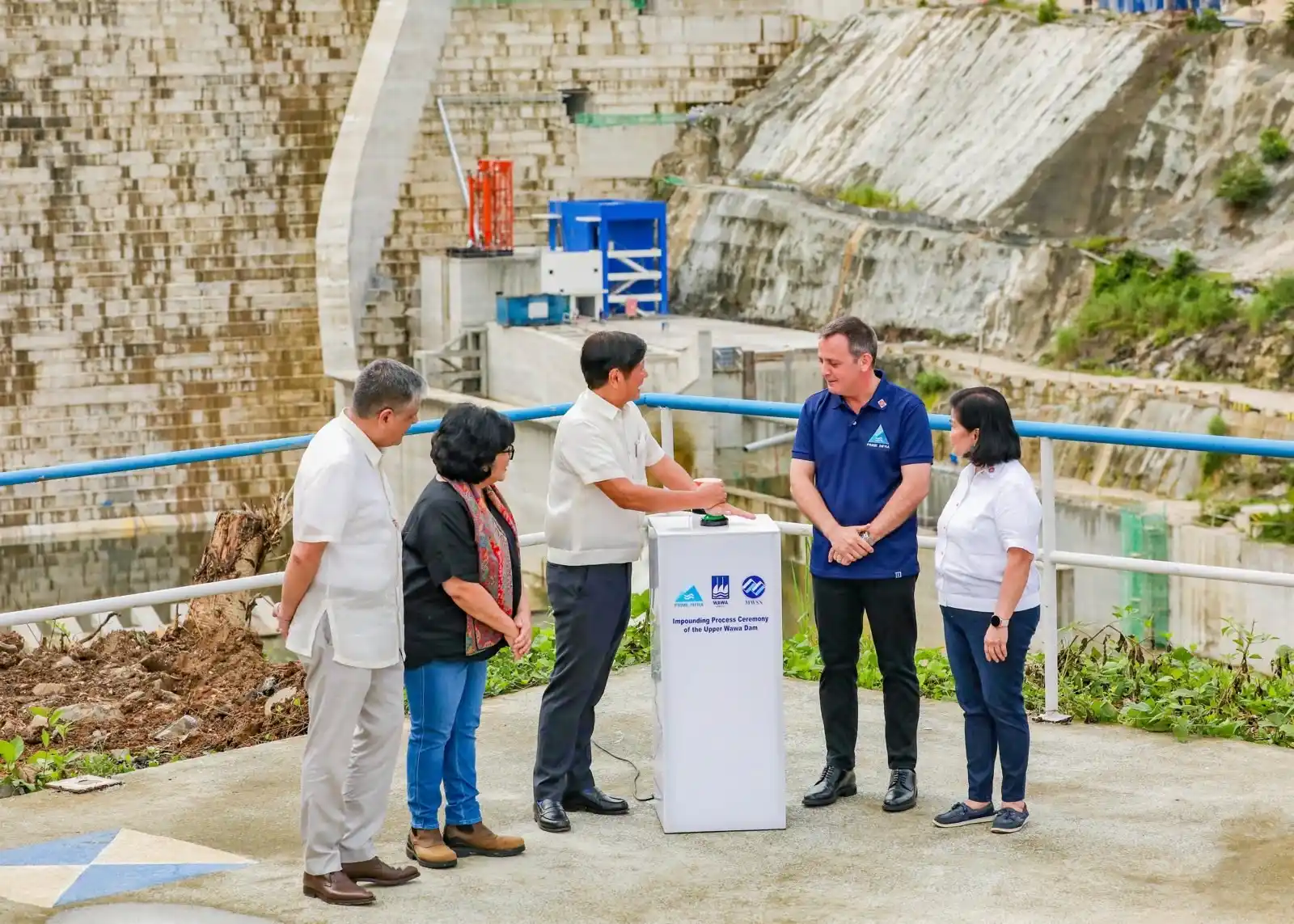
During his second SONA in 2023, Marcos emphasized a “special focus” on water security. “Ang tubig ay kasing-halaga rin ng pagkain,” he said during his address. “Kailangan nating tiyakin na may sapat at malinis na tubig para sa lahat at sa mga susunod na salinlahi.”
In April 2023, Marcos signed an Executive Order to create the Water Resources Management Office under the Department of Environment and Natural Resources, tasked to “handle the delicate job involving this most precious resource.” The following July, during his SONA speech, he called for passing a bill that would create the Department of Water Resource Management.
“It’s a department because we are going to reorganize everything,” he said during a meeting with the Legislative Executive Development Advisory Council in September 2024. “Because of the exigencies of climate change, we really have to direct our efforts, our attention to [water].”
In August 2023, Senator Ronald “Bato” Dela Rosa filed the Department of Water Resources Management Act, which aims to “recognize, protect, realize, and enhance the right of all Filipinos to safe, clean, affordable, and accessible drinking water.” In August 2024, the bill was replaced with the National Water Resources Management Act, offering a more comprehensive framework for managing the country’s water resources – including initiatives on sanitation and flood control, among others – under the Department of Water Resource Management. The bill has not seen movement since then, as it awaits a second reading.
Establish The Loss, Damage Fund Board
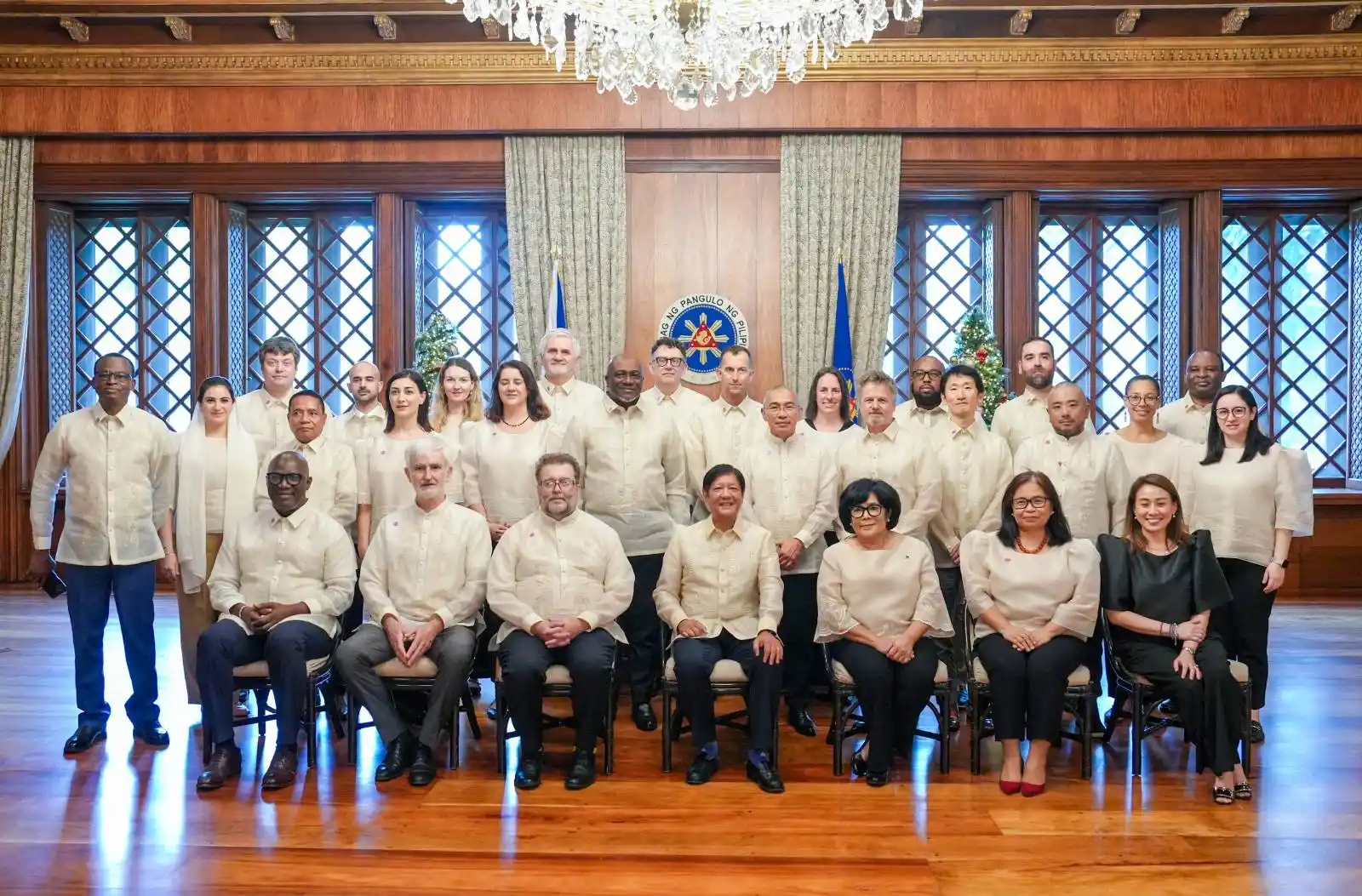
During his third SONA in 2024, Marcos called on Congress to approve the creation of the Board of the Loss and Damage Fund.
In July 2024, the Philippines was selected by the United Nations as the host country for the Board of the Loss and Damage Fund, aimed at helping vulnerable countries recover from climate impacts. Marcos saw this as a “welcome development” in providing “the needed financial assistance for climate-related initiatives and impacts” — a step towards making wealthier countries that have benefited from burning fossil fuels more accountable to the consequences of global warming.
Because the Philippines had 90 days to execute the host country agreement, the Loss and Damage Fund Board Act was swiftly approved in August 2024 with the affirmative votes of all senators present. The Board gathered in Cebu last July 9 to 11, 2025 — its sixth ever meeting and the second held in the Philippines — which saw attendance by Ibrahima Cheikh Diong, the Senegalese-American appointed as the Fund’s first Executive Director.
Build Infrastructure for Disaster Response
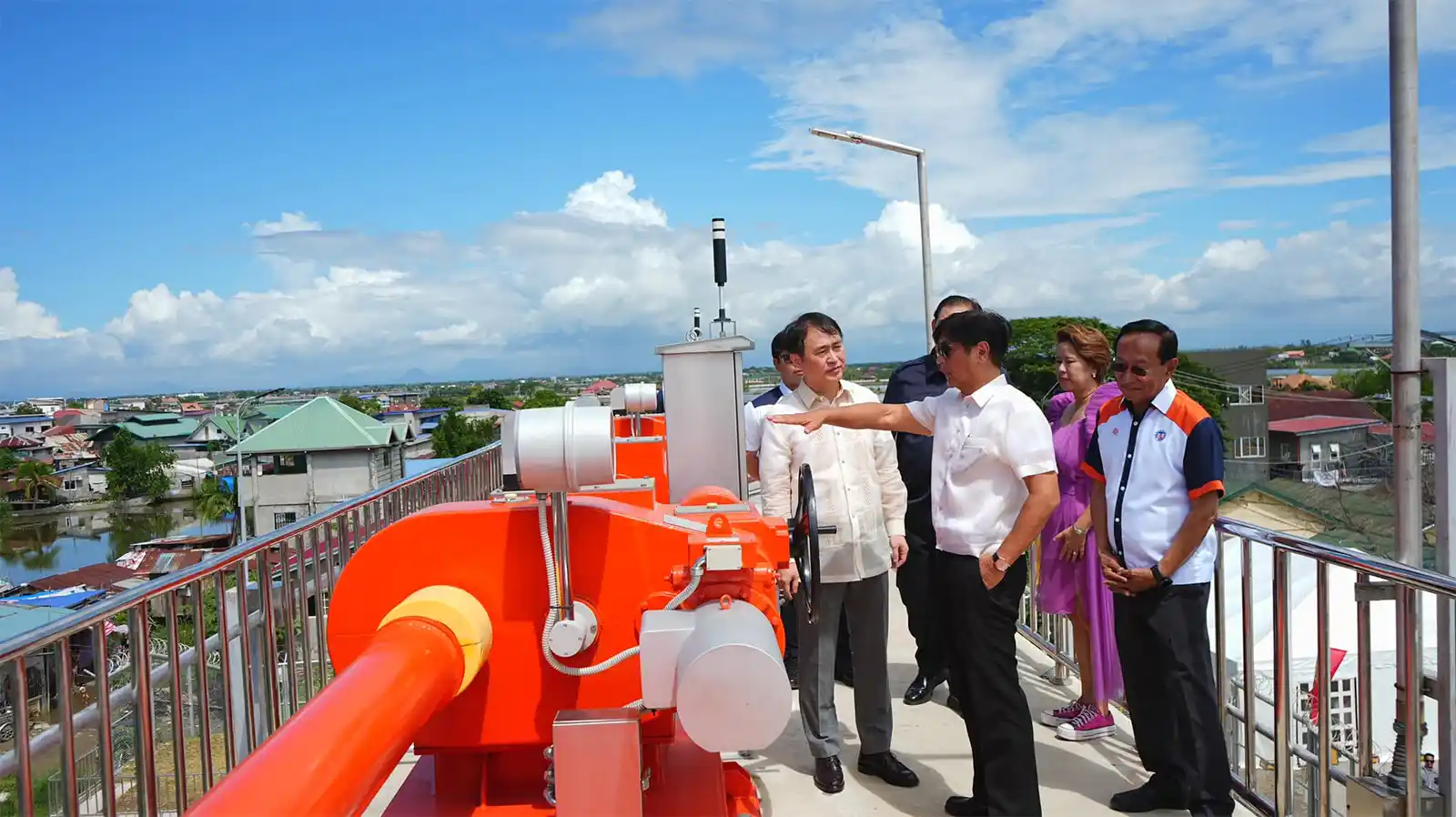
In July 2024, Marcos committed to building coordination centers for aid distribution during disasters. “Bilang pangunahing paghahanda, nagtatayo tayo ng mga mahahalagang imprastraktura na magsisilbing proteksyon at sentro ng koordinasyon, lalo na sa aspeto ng paghahatid-tulong,” he said.
In August 2024, Marcos inaugurated a P7.5 billion flood control project to improve the waterway capacity of four rivers flowing out to Pampanga Bay. The project was sources from the Export-Import Bank of Korea-Economic Development Cooperation Fund, with the South Korean government providing technical assistance in realizing the project. “We are very optimistic that this will redound to improving the people’s lives by enhancing the disaster resilience of all our communities,” Marcos said in his speech during the inauguration.
In November 2024, as the Philippines reeled from the aftermath of Severe Tropical Storm Kristine and Supertyphoon Leon, Marcos called for a probe into his administration’s flood control projects. “Our flood control was really overwhelmed. We have flood control, but it was not able to withstand [the typhoons] because in the entire history of the Philippines, this has not happened before,” Marcos told reporters. The following month, he vetoed P16.7 billion worth of flood control projects from the 2025 national budget, deeming it inconsistent with the administration’s priority programs.
“Ito pong mga vineto kasi na items karamihan po dito ay hindi kasama doon sa proposed President’s budget iyong tinatawag po natin na National Expenditure Program kung saan nakalagay iyong mga proposed projects… ng mismong mga implementing agencies like [Department of Public Works and Highways] or [Metro Manila Development Authority],” Goddess Hope Libiran, Undersecretary of the Department of Budget and Management (DBM), said in a December 2024 briefing.
On July 23, 2025, Senator Erwin Tulfo told reporters that Marcos ordered a freeze on certain flood control projects. “He hasn’t approved the release of any funds for flood control because he saw there were problems… The [DBM] said the President ordered the hold. I said, good. What right does a senator or congressman have to engage in flood control? None,” Tulfo said.


